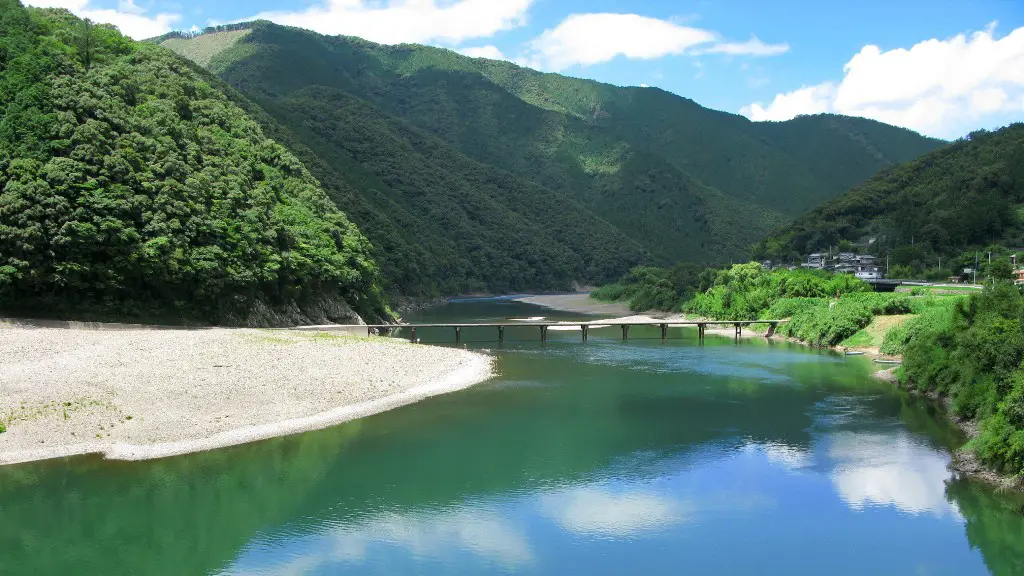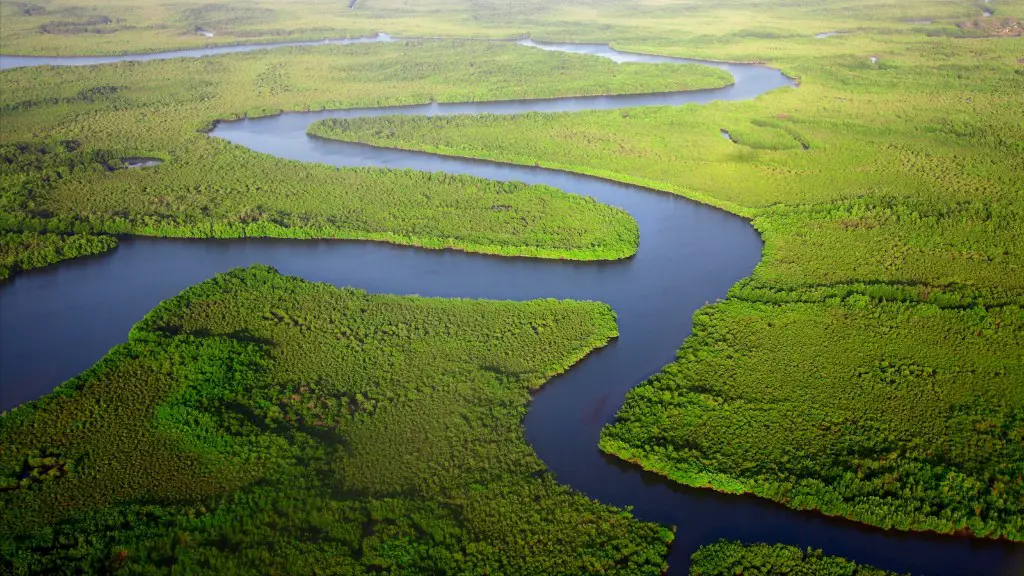The Nile River has been a source of life, community, and culture for Africans for centuries. It’s undoubtedly one of Africa’s most significant bodies of water, and continues to play an integral role in the prosperity and progress of African nations.
According to ecologists, since ancient times, the Nile River has been an essential part of the continent’s ability to sustain life. The life-giving properties of its fresh water, and its continuous flow, enable the growth of crops, fruit, and vegetables.
In many African nations, the Nile River is the single most viable source of fresh water, which is used for fishing, bathing, and cooking. The Nile is also an abundant source of hydroelectricity – a renewable form of energy that plays an increasingly important role in many African countries’ quest for a modernized economy.
Experts note that the Nile River provides a unique environmental backdrop for African communities. Much like the Amazon River in South America, the Nile consists of a wide variety of ecosystems that can’t be found anywhere else in the world. Scientists argue that the protection and preservation of these ecosystems is critical for the entire African continent’s future.
From a cultural perspective, the Nile River has been the source of inspiration for generations of African artists, authors, poets, and musicians. Its long history has shaped African culture and inspired some of the world’s most iconic works of art.
It’s no surprise that the African people have a deep connection and reverence for the river. Every day, Africans rely on the Nile River and recognize its importance in sustaining their lives.
At the same time, there is cause for concern. The Nile River is subject to pollution, political tension, and misuse – all of which could have devastating consequences. Governments and civic organizations in the region must work hard to ensure that all of Africa’s nations have access to the river’s precious resources.
Economic Role
The Nile River plays a vital role in the economic vitality of many African countries. It is a key source of commerce, providing a lifeline for budding industries, a pathway for trade, and a platform for investment.
In addition to its role in transportation, the river provides the power to operate numerous factories and industries that are crucial to economic prosperity. In many African countries, hydroelectric power plants powered by the Nile provide reliable energy and create many local jobs.
The river’s ability to generate revenue through fishing, farming, and tourism is also noteworthy. On any given day, millions of Africans are earning an income by working on the river. Tourists who come to explore the majestic landscape of the Nile often spend large amounts of money in African countries, providing a much-needed boost to the economy.
All in all, the Nile River is an essential pillar in the African economy. Its ability to provide clean and renewable energy, jobs, and revenue is invaluable, and it’s essential that African governments leverage its potential to foster economic stability and growth.
Environmental Impact
The Nile River also has a significant impact on the environment. Studies suggest that the river affects the climate and weather patterns in much of the continent, providing a source of stability to African ecosystems.
Despite its many benefits, the river also has its drawbacks. High levels of pollution from neighboring countries, agricultural runoff, and other sources have led to an alarming amount of pollutants in the river, threatening the health of marine life and creating environmental hazards for local humans.
It’s clear that something needs to be done to protect the delicate balance between humans and the environment. African countries must take swift action to ensure that the river is clean and unpolluted, while also balancing its economic contributions.
Experts also note that the water levels of the Nile have been declining in recent years, due to population growth, deforestation, and other natural factors. It’s essential that African nations work together to manage and protect the river’s water levels in order to ensure that everyone has access to its resources.
Societal Benefits
Experts say that the Nile River has a far-reaching social impact on African countries. For example, schools and universities often teach courses about its history and significance, helping to educate and empower the African people.
In addition, the river serves as an endless source of inspiration and exploration. Many African artists and architects use it as a source of creative inspiration, while adventurers and tourists continue to be mesmerized by its beauty and history.
When it comes to spiritual matters, the Nile River has long been a source of faith and hope for many. Ancient African civilizations believed that the gods lived in the river and filled it with spiritual powers. For these cultures, the river was a symbol of the divine connection between humans and nature.
In many aspects, the Nile River is an integral part of the African spirit. It is a source of inspiration, a place of solace, and an essential part of many people’s lives.
Political Tensions
Sadly, the Nile River is also a source of political tension. Several African countries rely on the river for food, water, and energy, but disagreements over management and access to its resources have led to tension between nations.
In recent years, Ethiopia’s plan to construct a dam on the river has been a flashpoint in the ongoing conflict. While the dam could provide much needed energy and agricultural activities, some African nations have argued that it threatens their access to the river’s water.
Experts suggest that the African Union and other international bodies must intervene in the dispute to ensure that both sides come to a peaceful agreement. The preservation of the river, and its resources, is too important to let politics get in the way.
Further, officials from African nations must strengthen diplomatic connections, respect each other’s interests, and take a collaborative approach to managing the river. If African leaders can come together to forge a common vision, the Nile River can become a symbol of unity, progress, and prosperity for all.
Conclusion
It’s clear that the Nile River is an invaluable asset to the continent of Africa. From its economic and environmental contributions, to its cultural and spiritual significance, the river serves as a common thread that binds African nations together.
To ensure the river’s future, African governments must ensure its continued protection and preservation. It’s essential that all African countries take responsibility for the river’s welfare and work together to resolve any conflicts over its resources.
By taking a proactive approach, African leaders can unlock the potential of the Nile and create a better future for the continent.





